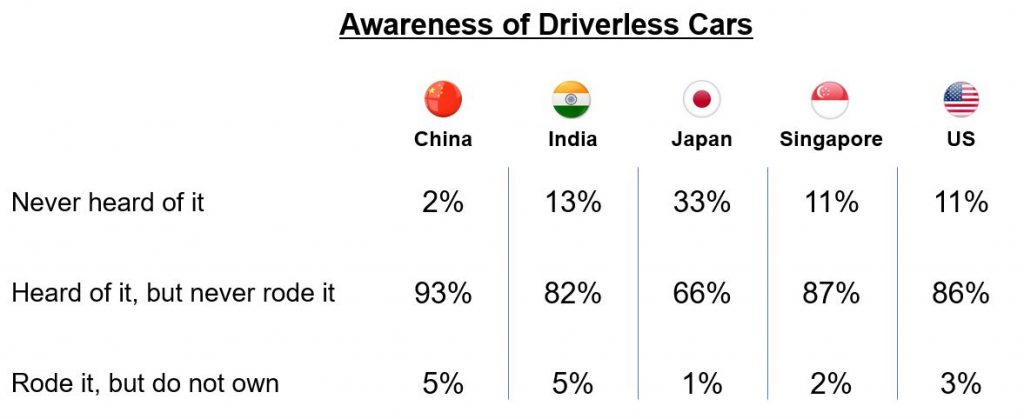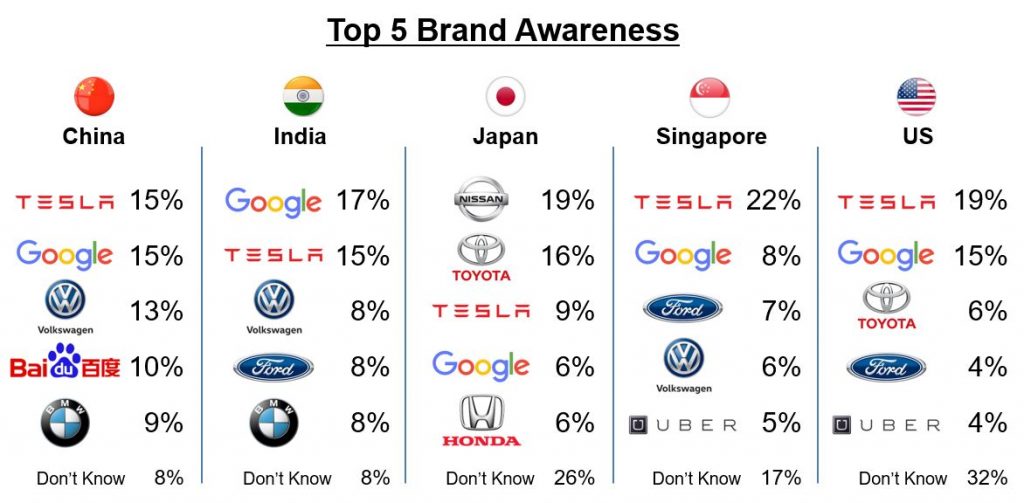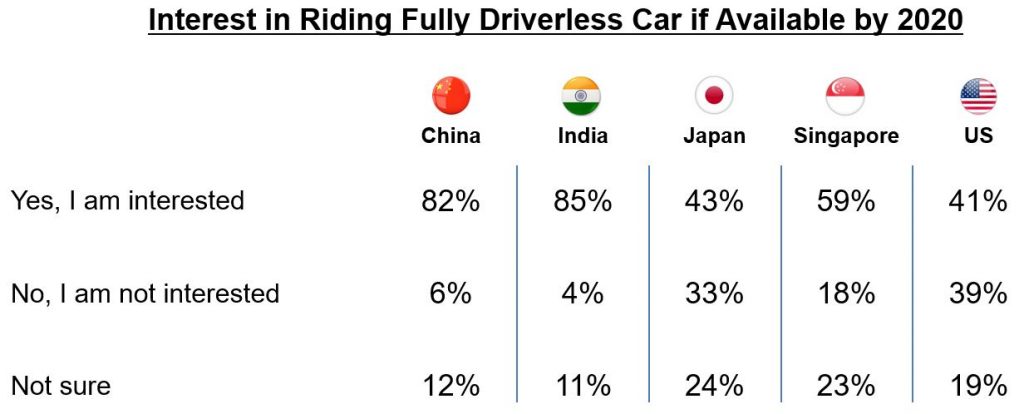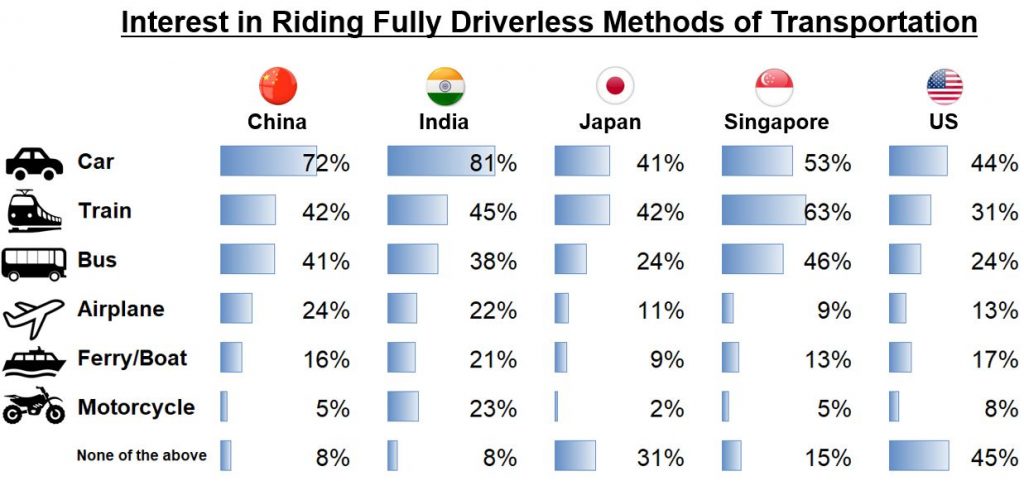The Future of Driverless Cars in Asia (Part 1)
How would you feel about riding a car that has no driver? The likes of Tesla and Google in the US have helped propel development of driverless cars elsewhere, with China, India, Japan and Singapore being key Asian markets of such initiatives.
At Rakuten AIP, we asked people in China, India, Japan, Singapore as well as the United States on how aware of and interested they are of the idea of fully driverless cars where you don’t have drivers onboard the vehicle.
Awareness of Fully Driverless Cars in Asia
Awareness levels of fully driverless cars among people in China, India and Singapore are similar to that of the US – nearly 90% or more have at least heard of it. Japan has comparatively less awareness, with two thirds claiming to have heard of driverless cars.
Q. How aware are you of “fully driverless cars”? A “fully driverless car” is a car that can drive itself without a driver onboard. (Select one)

Base: 20+ year olds, ~300 per country
Tesla and Google Top of Mind for Driverless Cars
Tesla and Google (including Waymo and parent company Alphabet) are top brand mentions for fully driverless cars people have heard of. They consistently share the top 2 positions of awareness in China, India, Singapore and the US. In Japan, automakers Nissan and Toyota take the lead.
It’s not just Google and automakers securing the top positions. Internet giant Baidu makes it into the top 5 in China, while Uber does so in Singapore and the US.
Q. What is the brand name of the fully driverless car you heard about? If multiple, name the first three that come to mind.

Showing top 5 brands mentioned and Don’t Know answer only
Base: Total # of mentions China n=521, India n=369, Japan n=236, Singapore n=323, US n=308. % based on coded open-ends. Google includes Alphabet and Waymo, Toyota includes Lexus, Volkswagen includes Audi
Looking Ahead to 2020
The year 2020 is regarded as a key milestone for driverless cars, with multiple companies aiming to launch such cars by then. We asked people to assume that fully driverless cars will be available by 2020. Those in China and India showed the highest levels of interest in riding driverless cars (not ownership, e.g. taxi, ride-sharing). Japan and the US had relatively lower interest, with Singapore in the middle.
Q. Please assume that a fully driverless car becomes available in your country by year 2020. Would you be interested in riding one when it becomes available (not own, e.g. taxi, ride-sharing)?

Base: 20+ year olds, ~300 per country
Driverless Transportation – Beyond Just Cars
The impact of artificial intelligence and robotics in the future will likely go beyond cars and into other means of transportation. We presented a list of various methods of transportation, asking which they would be willing to ride if fully driverless.
- China and India are most receptive of driverless cars, followed by trains and buses
- In Japan, driverless cars and trains have the same level of acceptance
- Those in Singapore prefer driverless trains more than cars
- The US prefers driverless cars over other means of transportation, but also has the highest possibility of going for none of the choices
As expected, airplanes, ferry/boats and motorcycles have lower acceptance vs cars, trains and buses. It’s fascinating though how motorcycles have ranked similarly to airplanes and boats in India.
Q. Which of the followings methods of transportation would you be willing to ride if they were fully driverless? (Select all that apply)

Base: 20+ year olds, ~300 per country
While advances in technology has helped propel the push for driverless cars, each market has unique levels of consumer acceptance and governmental regulations.
- India is a key example of how consumers are showing high willingness to adopt such technology, while the government is more regulative. It has just announced in July this year of banning driverless cars over concerns of job losses.
- Japan on the other hand has their 2020 Tokyo Olympics in the horizon to keep the momentum going, but may need to take extra care in promoting the safety and benefits of driverless cars to its consumers.
The next few years will be a very exciting time in Asia on how driverless cars will impact and potentially transform transportation as we know it today.
◼Survey Details
Markets: Age 20+ in China, India, Japan, Singapore, United States
Sample Size: ~300 per country
Methodology: Online Survey using Rakuten AIP proprietary panels
Fieldwork Timing: August 5-8, 2017